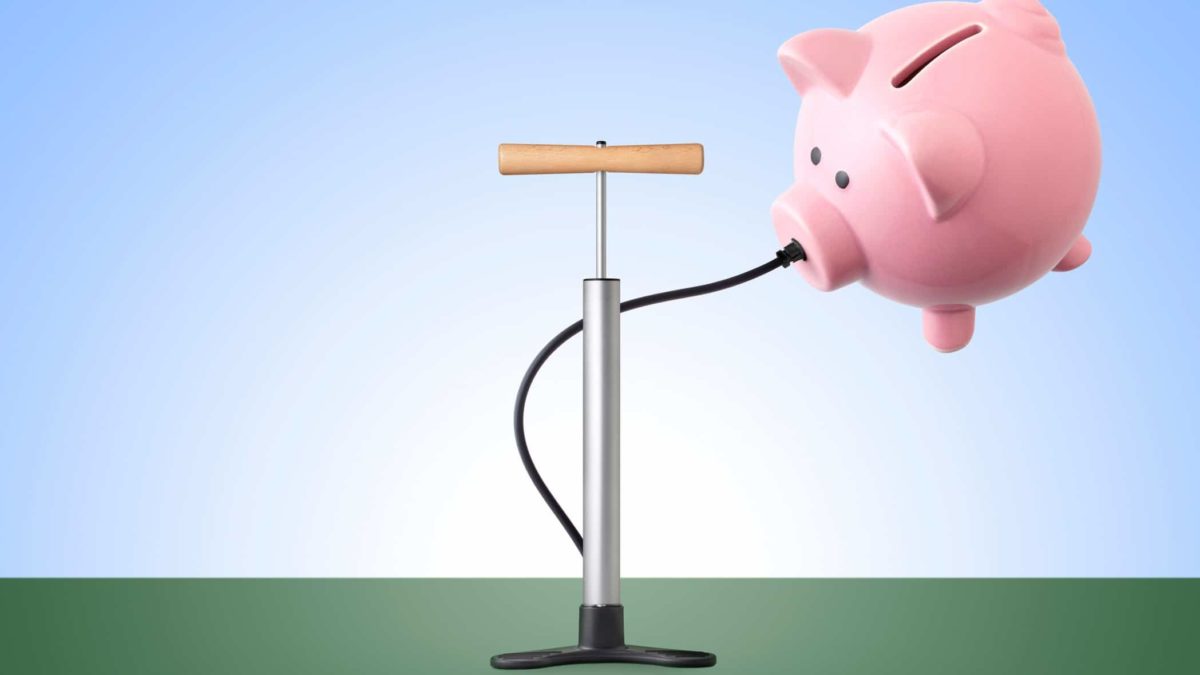One of the biggest current threats to the share market seems to be the prospect of rising inflation.
Investors are nervous because soaring inflation could provoke central banks to raise interest rates.
Many ASX shares are priced as if rates will stay at the current historic lows, so it's understandable why some people might be anxious.
"We're pretty certain about this. But we're not absolutely certain about the timing of the inflation," Nucleus Wealth head of investments Damien Klassen said last week.
"We are pretty certain that there'll be inflationary shock where people are going to be pricing in inflation. Over the last few days even, we've seen this – it's gone a bit exponential."
Speaking on a on a Nucleus webinar, Klassen and chief strategist David Llewellyn Smith picked out some places to invest in anticipation of inflation:
Value vs growth shares
Growth shares benefit the most from low interest rates, as their valuations depend on how cheap future money is.
So the most obvious way to invest for inflation is to shift into value stocks.
But once inflation hits the fan, Klassen said keen investors should still keep an eye on growth bargains.
"You're going to get these opportunities to buy growth stocks over the next few months or a year or two at a much cheaper price," he said.
"Because if we do return to deflation, those growth stocks are once again going to be in demand."
The transition away from growth stocks has already happened somewhat in the past couple of weeks. And Klassen expects this to continue for "a few months".
He did emphasise that this didn't mean buying up growth shares indiscriminately when the market is depressed. Purchases still need to be made at a prudent price.
"Note the Cisco Systems Inc (NASDAQ: CSCO) example I keep trotting out. The last 20 years, they've increased their earnings 6 times and their share price has halved," said Klassen.
"Because the price was so high to start with in the [1990s] tech boom. So it's a matter of getting that price right."
The Nucleus team, therefore, is buying into value shares now then plan to flip over to growth later in the year, according to Klassen.
Buy international shares
A by-product of the current environment is that the Australian dollar is trading at a high value.
It surpassed 80 US cents last week after descending to as low as 59 US cents 12 months ago in the midst of the COVID-19 panic.
"You're getting chances to buy international stocks at cheaper prices, over the next 6 to 12 months," said Klassen.
"If you can buy these with an Aussie dollar at 80 or 85 [US] cents, here's your chance to start getting exposure to international assets that are going to be very beneficial over the longer term – at a discount."
Exceptions to these rules
Klassen did note some exceptions to the above strategies.
"There's ones where we're reluctant holders," he said.
"We've got a lot more banks than we'd like to have."
He explained that the current environment of emerging inflation and rising long-term bond interest rates is positive for bank profitability.
But the danger is that deflation will soon take over again and stick around in the long term.
"If we're headed towards the European and Japan experience then the banks are really going to be the ones that suffer."
Shares associated with commodities also have short term potential but could plunge at any time after inflation arrives.
"There is a value trade in there but it's not an infinite value trade. We are concerned about the downside as well as the upside."









